(srpski) Optuženi za genocid u BiH u Srbiji dobio minimalnih pet godina zatvora
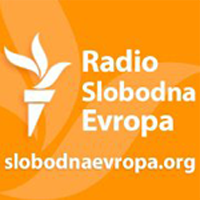
Sorry, this entry is only available in srpski.


Sorry, this entry is only available in srpski.

Sorry, this entry is only available in srpski.
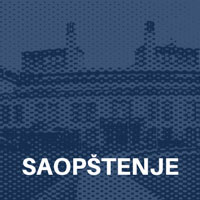
 The Appeals Chamber of the International Residual Mechanism for Criminal Tribunals (IRMCT) passed a judgment on the case against two former leaders of the State Security Service (SDB) of the Republic of Serbia’s Ministry of the Interior – Jovica Stanišić and Franko Simatović – establishing an international armed conflict in Bosnia and Herzegovina. This judgment has finally and unequivocally established the participation of the Republic of Serbia in the armed conflicts in Bosnia and Herzegovina and Croatia. The highest officials of the RS SDB were convicted as members of the joint criminal enterprise for the crimes perpetrated by the Serbian Volunteers’ Guard (SDG), Special Action Unit, Special Operations Unit (JSO) – the Red Berets, Martić’s Police and Scorpions in 1992 in Bosnia and Herzegovina: Bijeljina, Zvornik, Bosanski Šamac, Doboj and Sanski Most, and for the crimes perpetrated in 1995 in Trnovo and Sanski Most, as well as for the murder of Marija Senaši, perpetrated in Dalj Planina, Croatia, in June 1992.
The Appeals Chamber of the International Residual Mechanism for Criminal Tribunals (IRMCT) passed a judgment on the case against two former leaders of the State Security Service (SDB) of the Republic of Serbia’s Ministry of the Interior – Jovica Stanišić and Franko Simatović – establishing an international armed conflict in Bosnia and Herzegovina. This judgment has finally and unequivocally established the participation of the Republic of Serbia in the armed conflicts in Bosnia and Herzegovina and Croatia. The highest officials of the RS SDB were convicted as members of the joint criminal enterprise for the crimes perpetrated by the Serbian Volunteers’ Guard (SDG), Special Action Unit, Special Operations Unit (JSO) – the Red Berets, Martić’s Police and Scorpions in 1992 in Bosnia and Herzegovina: Bijeljina, Zvornik, Bosanski Šamac, Doboj and Sanski Most, and for the crimes perpetrated in 1995 in Trnovo and Sanski Most, as well as for the murder of Marija Senaši, perpetrated in Dalj Planina, Croatia, in June 1992.
The Appeals Chamber has established that Stanišić and Simatović, together with other military, political and police leadership from Serbia, the so-called SAO Krajina, SAO Slavonija, Baranja and Western Srem, as well as from the Republic of Srpska, constituted part of the joint criminal enterprise aimed at permanent expulsion of non-Serb population from the territories under the control of the Serb forces in BiH and Croatia, i.e. – ethnic cleansing.

Sorry, this entry is only available in srpski.
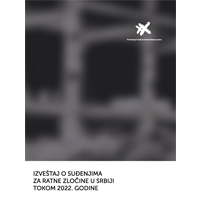
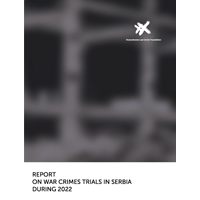 The HLC has monitored all war crimes trials conducted in the territory of Serbia in 2022, namely a total of 25 cases conducted before the War Crimes Departments of the Higher Court and/or the Court of Appeal in Belgrade.
The HLC has monitored all war crimes trials conducted in the territory of Serbia in 2022, namely a total of 25 cases conducted before the War Crimes Departments of the Higher Court and/or the Court of Appeal in Belgrade.
The Report provides a brief overview of the proceedings and of the HLC’s basic findings in respect of cases which are of public relevance. A large number of the war crimes cases covered by this Report have been going on for a number of years now, so that previous HLC annual trial reports are also relevant for a full grasp of the course of the proceedings and the pertinent HLC findings.
The report focuses on the work of the Office of the War Crimes Prosecutor (OWCP) and of the courts in parts of the judicial proceedings open to the public, primarily by analysing the indictments and the judgments in each particular case. An analysis of the work of other bodies involved in the prosecution of war crimes – the War Crimes Investigation Service of the Serbian Ministry of the Interior (MUP), the Witness Protection Unit and others, cannot not be undertaken in respect of the individual cases, as no information on their activities is publicly available.
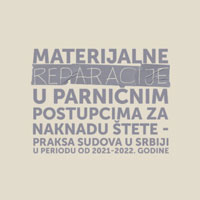
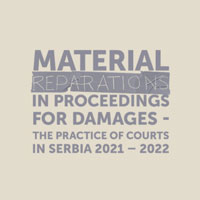 For a long time, the Humanitarian Law Center (HLC) has been publishing reports on the exercise of the right to compensation for victims of war crimes, through civil proceedings conducted before the courts in Serbia. The last such report covered the period from 2017 to 2020 and was presented to the public in 2021. This report covers the period from 2021 to the end of 2022.
For a long time, the Humanitarian Law Center (HLC) has been publishing reports on the exercise of the right to compensation for victims of war crimes, through civil proceedings conducted before the courts in Serbia. The last such report covered the period from 2017 to 2020 and was presented to the public in 2021. This report covers the period from 2021 to the end of 2022.
The obligation of the Republic of Serbia to provide redress to victims of human rights abuses, including in the form of adequate material reparations, remains unchanged. The harm inflicted on individuals and their family members implies the duty of the wrongdoer, the Republic of Serbia in this case, either to remove its harmful effects or to provide the victims with adequate redress. 30 years since the outbreak of the armed conflicts in the territory of the former Yugoslavia, the Republic of Serbia has not yet fully met this obligation. The political will to face and accept responsibility for past crimes and provide redress to all victims is still absent. As a result, the victims and their family members are forced to pursue their compensation claims through lengthy, costly and often uncertain civil litigation before the courts in Serbia.
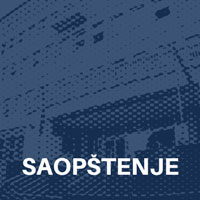
Sorry, this entry is only available in srpski.

Sorry, this entry is only available in srpski.
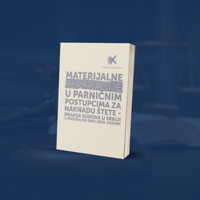
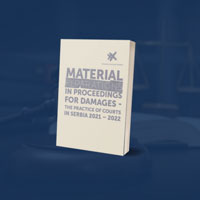 On Monday, 24 April 2023, Humanitarian Law Center (HLC) is going to present its report on “Material reparations in proceedings for damages – the practice of courts in Serbia 2021-2022 “ (the Report). The presentation will be held in the large hall of Media Centre Belgrade (Terazije 3, II floor), beginning at 12.30.
On Monday, 24 April 2023, Humanitarian Law Center (HLC) is going to present its report on “Material reparations in proceedings for damages – the practice of courts in Serbia 2021-2022 “ (the Report). The presentation will be held in the large hall of Media Centre Belgrade (Terazije 3, II floor), beginning at 12.30.
The report analyses the course of ongoing court proceedings during the years 2021 and 2022. However, since most procedures have lasted for more than two years, the Report also provides a short overview of the procedures before 2021, to facilitate the tracking.
The Report is divided into two parts. The first part of the Report analyses the individual cases currently adjudicated by the Serbian courts, while the second part renders the main problems identified by HLC during its efforts as the key ones which prevent the victims from exercising their rights to reparations before domestic courts.
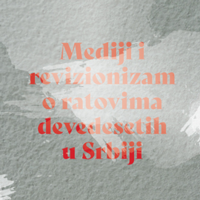
 Following the regime change in 2012, the new authoritarian regime under the Serbian Progressive Party (SNS) put memory politics high on its political agenda. The revisionist history of the 90s’ wars now constitutes the primary source of its political legitimization. At the same time, the new government established a firm grip over media, leaving a few independent outlets still critical of the new memory politics. A majority of mainstream media operate in symbiosis with the regime, actively contributing to the new revisionist narrative. These narratives are further supported and accelerated in tabloid and alternative media, offering an even more radicalized version of the past. In such a mediascape, actors working on critical memory are limited to a few independent media outlets. At the same time, they are under constant threat from the regime and tabloids alike.
Following the regime change in 2012, the new authoritarian regime under the Serbian Progressive Party (SNS) put memory politics high on its political agenda. The revisionist history of the 90s’ wars now constitutes the primary source of its political legitimization. At the same time, the new government established a firm grip over media, leaving a few independent outlets still critical of the new memory politics. A majority of mainstream media operate in symbiosis with the regime, actively contributing to the new revisionist narrative. These narratives are further supported and accelerated in tabloid and alternative media, offering an even more radicalized version of the past. In such a mediascape, actors working on critical memory are limited to a few independent media outlets. At the same time, they are under constant threat from the regime and tabloids alike.